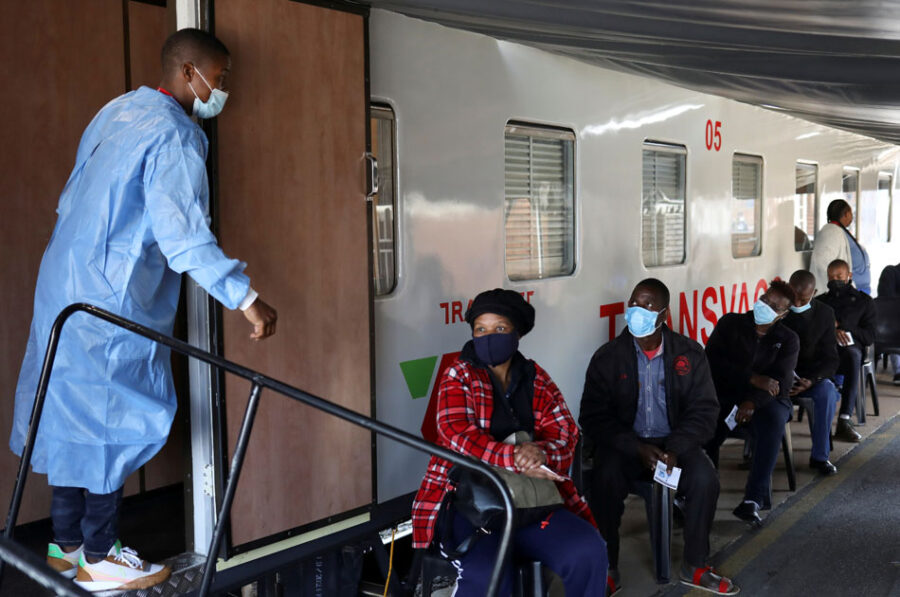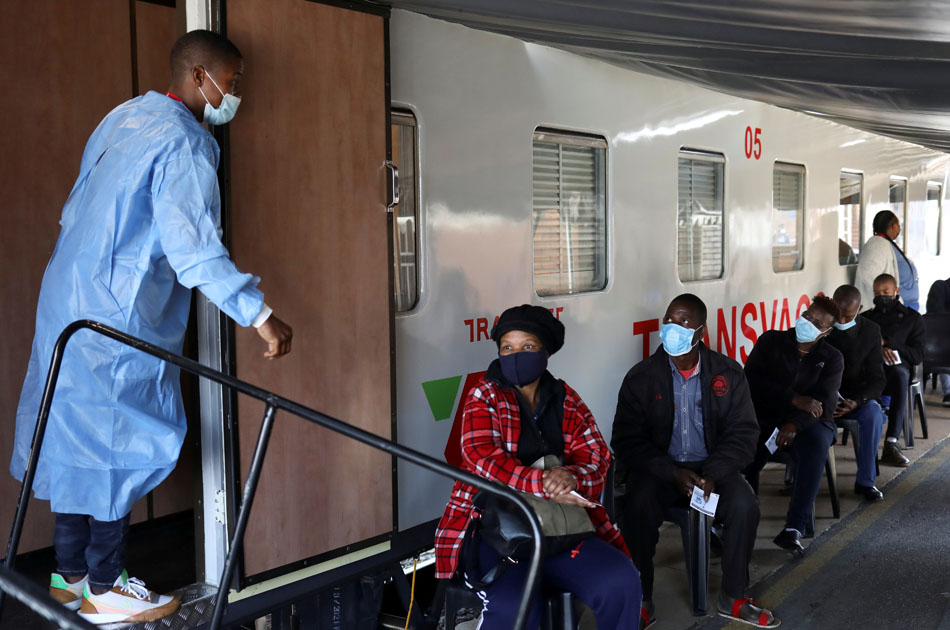
South Africa Asks J&J and Pfizer to Delay as Vaccine Inoculations Slow
JOHANNESBURG (Reuters) – South Africa has asked Johnson & Johnson and Pfizer to delay delivery of COVID-19 vaccines because the country now has too much stock, health ministry officials said, as vaccine hesitancy slows an inoculation campaign. By Promit Mukherjee. About 35% of South Africans are fully vaccinated, higher than in most other African nations, […]

JOHANNESBURG (Reuters) – South Africa has asked Johnson & Johnson and Pfizer to delay delivery of COVID-19 vaccines because the country now has too much stock, health ministry officials said, as vaccine hesitancy slows an inoculation campaign. By Promit Mukherjee.
About 35% of South Africans are fully vaccinated, higher than in most other African nations, but half the government’s year-end target. It has averaged 106,000 doses a day in the past 15 days in a nation of 60 million people.
Earlier this year the programme was slowed by insufficient doses. Now deliveries have been delayed due to oversupply, making the country an outlier in the continent where most are still starved of vaccines.
Across Africa, vaccination rates are lower than much of the rest of the world, with many countries struggling to secure enough doses. But some countries are now seeing rising supplies while vaccine campaigns are not gathering pace, such as Kenya.
Nicholas Crisp, deputy director-general of the Health Department, told Reuters that South Africa had 16.8 million doses in stock and said deliveries had been deferred.
“We have 158 days’ stock in the country at current use,” a spokesman for the Health Ministry said. “We have deferred some deliveries.”

They did not say when deliveries would now take place.
Stavros Nicolaou, a senior executive of Aspen Pharmacare, which is packaging 25 million doses a month of J&J vaccines in South Africa, said most of the vaccines bound for South Africa would now go to the rest of the continent.
Nicolaou, who is also chairman of public health at business lobby Business for South Africa (B4SA), said deliveries would likely be deferred until the first quarter of next year.
Vaccines packaged at Aspen’s plant are part of the African Union’s agreement to buy 220 million doses from J&J.
The AU and J&J did not respond to an emailed requests for comment.
A Pfizer spokesperson said: “We remain adaptable to individual country’s vaccine requirements whilst continuing to meet our quarterly commitments as per the South Africa supply agreement.”
South Africa’s government has been seeking to boost the rate of daily administered doses.
“There is a fair amount of apathy and hesitancy,” said Shabir Madhi, who led the clinical study for the AstraZeneca COVID-19 vaccine in South Africa.
To ramp up vaccinations, the government has launched pop-up vaccination centres and sought help from community leaders. It has also opened inoculations to children aged 12 to 17.
In Kenya, the Health Ministry said on Sunday vaccinations were moving too slowly among some parts of the population. Its statement did not mention any plan to delay any deliveries.
“We are … concerned that only 18% of the elderly population is fully vaccinated and that vaccine uptake has generally slowed down in several counties following the lifting of the curfew last month,” Health Minister Mutahi Kagwe said.
Covid-19 Cases rise in Gauteng
Cases in Gauteng continue to rise with 605 of the 868 new COVID-19 infections in the country (recorded on Tuesday) coming from the province.
According to the National Institute for Communicable Diseases (NICD), the second hardest-hit province is the Western Cape with 52 cases, followed by 47 in Mpumalanga and 43 in the North West.
There have been 2 948 760 laboratory confirmed cases in SA since the outbreak.
As of Tuesday, the rapid antigen tests have been included in the country’s official COVID-19 statistics (which caused the increase in cumulative cases in yesterday’s report).
The Department of Health said a further 51 COVID-19 related fatalities have been reported, bringing the official death toll to 89 635. Only 14 million people have been fully vaccinated in South Africa.
Global view
Globally, the World Health Organisation (WHO) said the numbers of weekly COVID-19 cases and deaths have increased for more than a month.
The European region logged an 11% increase in new weekly cases, while other regions reported a decrease or similar incident to the previous week.
The Western Pacific and Americas recorded “relatively” stable case incidence, but both reported a large spike in new weekly deaths, 29% and 19% respectively.
In contrast, the African and the South-East Asia regions reported a 30% and 19% decrease in new weekly deaths.
The cumulative number of confirmed cases reported globally now stands at over 256 million and more than 5.1 million deaths.
The highest numbers of new cases were reported from the United States (558 538 new cases, similar to the previous week), Germany (333 473 new cases, 31% increase), the United Kingdom (281 063 new cases, 11% increase), Russia (260 484 new cases, similar to the previous week) and Turkey (163 835 new cases, 9% decrease).
The agency said the current global epidemiology of SARS-CoV-2 is characterised by a predominance of the Delta variant.
(Reporting by Promit Mukherjee; Additional reporting by Maggie Fick / Reuters and Jenni Baxter / SAPeople; Editing by Josephine Mason and Edmund Blair / Reuters and Jenni Baxter / SAPeople. Sources also include SANews.gov.za)
